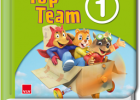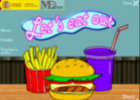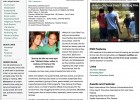Cargando...
Recursos educativos
-
Nivel educativo
-
Competencias
-
Tipología
-
Idioma
-
Tipo de medio
-
Tipo de actividad
-
Destinatarios
-
Tipo de audiencia
-
Creador
Lo más buscado
- Actividades día de la paz
- Huesos del cuerpo humano para niños
- Juegos para aprender en educación primaria
- Actividades de geometría quinto
- Actividades de lenguaje para primaria
- Relieve de América
- Dibujos de Halloween para recortar
- Aprender inglés septimo
- números reales
- Divisiones decimales
- Experimentos de acústica para educación inicial
- Aprender a dividir
- Juegos experimentos
- Juegos de matemáticas para tercero
- Rios de Europa
-

Top Team 1
EduBook Organización
- 10 lo usan
- 2917 visitas
0. Hello! 1. My room 2. My family C. Families 3. Food S. I’m hungry! 4. My body 5. Animals C. Animals 6. My holidays S. The Gingerbread Man D. Christmas D. Easter R. Revision 0. Hello! 1. My room 2.…
-

-

Complete. Wartime shortages
EduBook Organización
- 3939 visitas
Complete the text with the missing words: prices – black – scarce – hardship – civilian – agricultural – food – rationing Economic was worse for the Republican population, as resources…
-

Complete - Remember
EduBook Organización
- 1 lo usan
- 3423 visitas
Complete: A living thing's is the place where it lives. things form the physical environment and living things form the environment. A living thing is to its environment when it can survive and live…
-

Analyse. Algae
EduBook Organización
- 3199 visitas
Read the text and answer the questions: Algae in everyday life Algae contain a lot of proteins, minerals and vitamins, which means they are used as food in some countries. Industry also gets useful…
-

Let's eat out
INTEF Organización
- 1 lo usan
- 6289 visitas
In this unit we learn/revise how to talk about the future, make plans, make suggestions, order food and express preferences. We practice vocabulary (fast food, ingredients, prices). We improve oral and…
-

Plant nutrition
EduBook Organización
- 3071 visitas
Photosynthesis Plants and animals both feed on organic matter. However, plants are different to animals because they make their own organic matter and turn it into food. They do this through a process…
-

Identify. The basis of 18th century economics
EduBook Organización
- 2940 visitas
Match the sentences with the economic situation in the 18th century: Periodic food shortages and price increases. Fewer epidemics and greater food production. Consequence of an increase in population…
-

Video: What's on your plate?
Tiching explorer Organización
- 1 lo usan
- 5251 visitas
This is the description of a documentary in which 2 eleven-year-ol kids from New York explore the food chain and discover the benefits of local farming and community supported agricolture programs…
-

Unit 8: Prehistory
EduBook Organización
- 2817 visitas
Cave art (n): Prehistoric paintings found on the walls and ceilings of caves. hominid (n): a member of the family of mammals that includes humans and their primate ancestors. hunting (n): the activity…
Te estamos redirigiendo a la ficha del libro...













